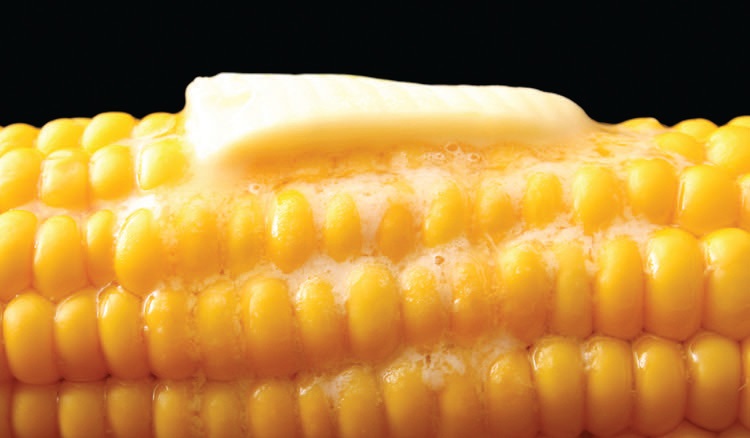Natural synthetic milk
Evan Zabawski | TLT From the Editor July 2010
An oxymoron simplifies an oft-misunderstood definition.

Yes, butter is a synthetic product. Synthetic does not mean man-made but, rather, man-manipulated.
www.canstockphoto.com
Last year a colleague asked me to pinch-hit for him by presenting at a local STLE meeting. Though the presentation had not been written, the topic he had selected was “Extracting the Real Benefits of Higher Cost Synthetics.” Knowing I was facing a crowd that ranged from students to lubricant salespeople, I felt it was fair to begin the presentation with a definition of synthetic fluid.
My usual spiel begins by clearly identifying the source of synthetic fluids, at least of the hydrocarbon nature, as being crude oil, natural gas or other naturally occurring underground deposits. I always clarify that the term synthetic does not mean man-made but, rather, man-manipulated or, more simply, significantly modified. Then I show the 1990 API Base Oil Classification System and begin my explanation of the core differences in simplest terms using an analogy.
For this presentation I was inspired to use a dairy-based analogy. Crude oil, being the feedstock, is compared to milk. Both occur naturally but must be manually extracted.
The oldest technology for refining oils is solvent refining, which yields a product typically classified as API Group I base oil. The oldest technology for purifying milk is gravity, which separates the milk from the cream.
A superior refining process using high-pressure hydrogen, hydrocracking, yields a higher purity product and is classified as API Group II base oil. The only way to enhance gravity separation to improve the purity of milk is to use a separator to mechanically augment gravity through centrifugal force.
Severe hydrocracking and hydroisomerization both break long-chain molecules such as wax into smaller, more useful molecules, yielding better viscosity-temperature characteristics. The higher Viscosity Index product, with all else being equal, is classified as API Group III base oil. While milk does not have a direct equivalent to Viscosity Index, one improvement over mechanically separated milk is better shelf life, which is achieved using pasteurization. Pasteurization uses high temperatures to destroy certain microorganisms to slow the rate of spoilage and likelihood of disease.
Only polyalphaolefins (PAOs) qualify as API Group IV base oils, and they are manufactured using a chemical process called oligomerization. Quite simply, it is taking small molecules and building them into larger, more desirable molecules. This process is a chemical reaction that does not occur naturally, resulting in a significantly modified product we term truly synthetic. So what is the equivalent in milk-speak?
Taking small molecules of fat and building them up to larger molecules of fat in a milk environment is accomplished by aggressive agitation. While being only physical input, it does yield a chemical reaction that does not occur naturally. If you haven’t guessed it, it’s called butter.
Often referred to as ‘natural,’ butter is anything but natural. It is chemically different than its feedstock, and it is definitely significantly modified. It is man-manipulated, not man-made. For all intents and purposes, it fits the definition I prescribed as synthetic.
However, the marketing definition of synthetic oil is not merely limited to Group IV oils but extends to some Group III oils. In 1999 Mobil complained to the National Advertising Department (NAD) regarding Castrol’s decision to switch its basestock away from PAO to a hydroisomerized Group III, without changing its description as “fully synthetic motor oil.” The NAD sided with Castrol regarding the term synthetic but did recommend alteration of the company’s unsubstantiated superiority claims such as “best protection” and “unique molecular bonding.” Purists continue to argue this decision over a decade later.
So the next time you sit down at the table to eat corn-on-the-cob during these summer months, make sure you say please when asking someone to pass the synthetic milk.
 Evan Zabawski, CLS, is manager of training and education services for The Fluid Life Corp. in Edmonton, Alberta, Canada. You can reach him at evan@fluidlife.com
Evan Zabawski, CLS, is manager of training and education services for The Fluid Life Corp. in Edmonton, Alberta, Canada. You can reach him at evan@fluidlife.com.